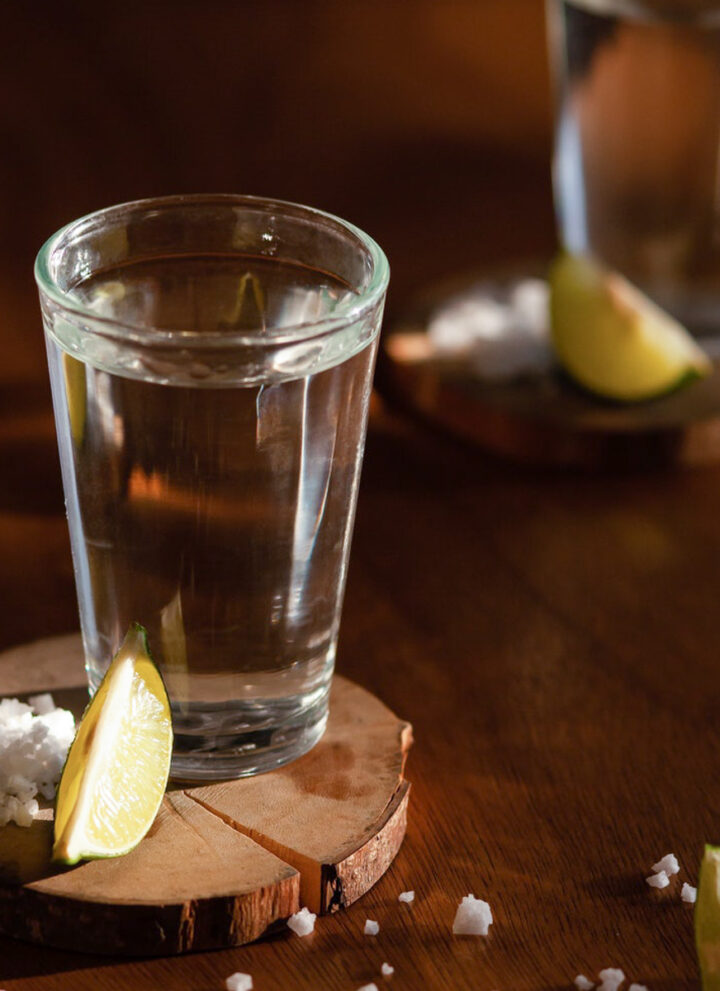Is sugar vegan? In short: some sugar is vegan, some may not be vegan.
Finding out that sugar may not be vegan is shocking. It's sugar after all - isn't it made from just sugarcane or sugar beets? What could make it non-vegan? The answer is bone char, it is often referred to as 'natural carbon'. It's widely used by the American sugar industry as a decolorizing filter, to give sugar its white color.
Jump to:
💭What is bone char?
Bone char is made from the bones of cattle that were slaughtered in countries such as Afghanistan, Argentina, India, or Pakistan, and then sold to traders in other foreign countries, who then sell the bones back to different parts of the world, including the U.S. sugar industry.
As for the regulation of bone char, the European Union (EU) and the United States Department of Agriculture (USDA) have regulations in place regarding its use. However, it's important to note that the regulations and practices may differ between the two regions.
In the EU, the use of bone char for sugar production is generally not permitted. European sugar producers commonly employ other methods, such as activated carbon or ion-exchange resins, to refine sugar. Therefore, sugar produced in Europe is typically considered safe for vegans.
In the United States, bone char is still allowed for sugar refining. However, it is worth mentioning that many sugar refineries in the U.S. have shifted towards alternative methods, like ion-exchange resins or granular activated carbon, to process sugar. Consequently, some but not all sugar produced in the U.S. involves the use of bone char.
When it comes to cattle bones used in the production of bone char, countries exporting bones for this purpose are typically subject to regulations and inspections to ensure they are free from bovine spongiform encephalopathy (BSE) or "mad cow disease." This BSE-free requirement applies to countries worldwide.
It's important to stay updated on current regulations and practices, as these can change over time.
🌱 What sugar is vegan?
Firstly, beet and coconut sugar are never processed with bone char. They are considered vegan-friendly options as bone char filtration is not commonly used in their production.
Organic sugar, certified by the U.S. Department of Agriculture (USDA) cannot be filtered through bone char. Organic sugar goes through a different refining process and therefore, if you choose organic sugar, you can be confident that it does not contain bone char.
When purchasing sugar that is not organic, it's advisable to look for terms like "unrefined" or "made from beets." Unrefined sugar generally undergoes minimal processing and doesn't go through bone char filtration. Beet sugar, derived from sugar beets, is typically refined using alternative methods and is unlikely to involve bone char.
By selecting beet sugar, coconut sugar, organic sugar, or unrefined sugar, vegans can ensure they are consuming sugar products that are not processed with bone char.
However, it's always a good idea to check labels or contact the manufacturer for confirmation, as practices can vary among different brands and suppliers.
🤔 What about brown and powdered sugar?
Unfortunately, Bone char is commonly used in the production of both brown sugar and powdered sugar. Companies that utilize bone char in the refining process of white sugar often apply the same method when producing brown sugar. The same can be true for confectioner's sugar and powdered sugar produced by such companies, as they often involve the use of bone char.
Regarding fructose, while it can potentially be filtered using bone char, it's not a common practice. Most commercial fructose production does not employ bone-char filtration.
To ensure that the brown and powdered sugars you purchase are vegan, it's a good idea to look for products that are certified USDA organic and/or labeled as vegan by a trusted certification authority. These certifications indicate that the sugar has not been processed using bone char.
I reached out to Winco Foods and their brown sugar is vegan!
Same with Target's Good & Gather Powdered Sugar and Organic Powdered Sugar, Florida Crystals, and Tom Thumb Organics. They are all vegan-friendly.
When looking to purchase brown or powdered sugar, I recommend looking for powdered and brown sugars that are declared USDA organic and/or vegan with a trusted label. In general, if you're uncertain about the vegan status of a particular sugar product, reaching out to the brand directly for clarification is a reliable approach.
📋 Vegan sugar brands list
Generally, US supermarket brands of sugar (e.g., Giant, Townhouse, etc.) obtain their sugar from several different refineries, making it impossible to know whether it has been filtered with bone char or not. If you are unsure contact companies directly or buy a brand that is known for not using bone-char filters. Some known vegan brands are:
- All USDA certified organic sugars
- Wholesome!
- Sugar In The Raw
- WinCo Foods - House Brand
- Whole Foods 365
- Bob's Red Mill
- Florida Crystals Sugar
- Zulka
- Domino Sugar
- Big Tree Farms
- Rapunzel
- Billington's
- Simple Truth
- Trader Joe's
- Now Foods
Beware: Some brands are declared vegan on PETA Websites and guides, but still process their sugar through bone char in the United States. These are often brands that sell in Europe where sugar is never processed through bone char. So some of the information online can be misleading! When contacting these brands they like to answer a bit 'wishy washy' about this topic, but are usually processing through bone char in the states. Examples are Imperial Sugar, Dixie Crystals, and Kroger. I recommend always looking for brands that have a clear trusted vegan label, or USDA organic label!
💊 Refined sugar and health
Added refined sugars are one of the most controversial ingredients in our daily diet. Refined sugars, meaning white and brown table sugar, have gone through a chemical process that removes impurities, by heating, clarifying, and dehydrating cane juice until crystals form. As we learned that process is not always vegan in the United States. This process also takes away beneficial nutrients!
Refined table sugar has been associated with many serious diseases, including obesity, heart disease, diabetes, and cancer. Research shows refined sugars may cause the body to store fat, and increase blood pressure and diabetes risk. Unrefined alternatives have more nutrients and may have fewer adverse health effects. (source)
Part of the whole problem is that most people consume way too much sugar, often without even knowing it. Remember: Any sugar that is not in its whole-foods plant-based form can harm your health when consumed in excess. Learn here which sweetener may be the healthiest for you. Following I will list some refined sugar alternatives to use in your kitchen.
🌾 Raw Cane Sugar (unrefined)
This raw form of sugar, also called turbinado, is somewhat less processed than regular sugar. It still retains some of the molasses and moisture from the plant, which gives sugar its nutrients. Technically you’re consuming less sugar and calories per serving, making it a bit healthier. However, it is still high in sugar and calories and therefore should be used and ingested with moderation.
It can also appear as cane juice, which is often used to sweeten non-dairy milk like almond or hemp, and in many other healthier baking options. It can be substituted in a 1:1 ratio. In almost all of my vegan baking recipes, I use organic or raw cane sugar.
🫘 Dates
Raw dates, date sugar, or date syrup can be a great and healthy alternative to regular table sugar in your diet. The easiest way to substitute granulated sugar with dates is to chop up some dates and add them to your meal (eg oatmeal). Another way is to make date syrup at home by softening raw dates in water and then blending them into a thick paste.
In the store and online you can also purchase date syrup and date sugar. Date sugar can be used like granulated sugar. Because it is made with dehydrated dates that are ground to resemble granulated sugar.
🍯 Agave
Agave nectar or syrup is providing just a tiny bit more nutrients than refined sugar. Its taste, color, and texture remind of honey. Vegans can use agave as a honey substitute. (Learn more about honey and why vegans choose not to eat it, in this article from worldofvegan.) Due to its rich sweetness, you may not need to use it as much. Use in place of other sweeteners in nearly any cooking situation, which makes it so versatile and useful! For using agave you might have to make some changes to your regular recipes since it is a liquid.
However, it’s high in calories and contains a lot of fructose — even more than high-fructose corn syrup. Use Agave nectar generally in moderation.
Other natural sweeteners
Despite raw cane, dates, and agave, other natural sweeteners include:
- Pureed Fruits
- Monkfruit
- Stevia
- Erythritol
- Xylitol
- Coconut Sugar
- Molasses





Great info! I didn't know about the bone char 🙁 We mostly buy organic so at least our sugar at home isn't made that way. It's crazy some of the things that you would just assume are vegan but aren't!
Thank you so much for sharing this! It was so good and helpful to learn!
Hmm, so much to learn. Thank you for this informative post. I normally sub sugar for maple syrup. Glad I read this.
I get this question SO SO SO often, thanks for creating this guide! I do try to remind people also that even our fruit and veggies are grown in cow manure purchased from the factory farming industry, or even bloodmeal, etc. so it's impossible to be perfect! But it is cool to see companies come out with vegan labeled sugar!!
wow i did not know that!! thanks for sharing these helpful info!
this is so incredibly helpful and handy to have! thanks so much!
Super useful and interesting guide to sugar. I was avoiding white sugar for a long time, but didn't know that brown sugar can go through the same process (with bone char, yuck).
This is so crazy how carefully we need to choose the products we buy not to consume something unwanted.
Such a helpful post! I learned so much about what makes a sugar vegan or not!
What a lovely break down of how sugar is processed. I never would have guessed all sugars aren't vegan (also happy to know the brand I use is safe) I don't follow a vegan diet but it's good info to have!
Great article. Thank you. I wanted to know if Aldi sugar is vegan.
Hi Christine, thank you so much for your feedback and great question! To which of the brands they carry are you referring exactly? If it is made in the EU then it should be vegan. Otherwise, I would recommend sending @aldiusa on Instagram a DM with the specific brand you are asking for. I hope this helps!
"The European Union and the USDA heavily regulate the use of bone char. Only countries that are deemed BSE-free can sell the bones of their cattle for this process. Therefore sugar in Europe is generally safe for vegans."
Surely that last sentence needs further explanation, or re-writing.
Sugar in europe is considered vegan because they don't use any bone char in the processing of white sugar, right? Or is this not established?
If they're not using any bone char, then whether or not the bones are BSE-free is irrelevant.
If they **are** using bone char (clean or not), then it's not vegan.
Thank you for your comment and feedback. I have taken your concern into consideration and have revised the section to provide further elaboration on the topic. Thank you for taking the time to read it, and I wish you a happy day.